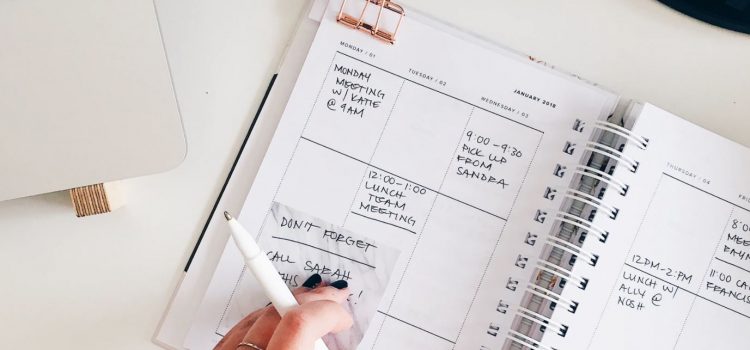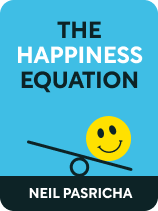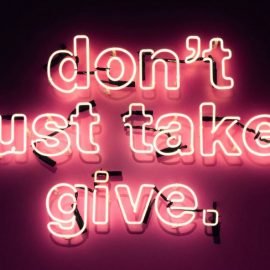

This article is an excerpt from the Shortform book guide to "The Happiness Equation" by Neil Pasricha. Shortform has the world's best summaries and analyses of books you should be reading.
Like this article? Sign up for a free trial here .
What hinders productivity? How can you reduce the burden of trivial, insignificant tasks and free up the space to focus on what really matters?
One of the most common hindrances to productivity is being occupied with trivia. Trivial tasks contribute to stress and overwhelm as they waste your time, deplete your energy, and slow down progress on your goals. For example, deliberating over how to start an email uses up time and energy, distracts you from productive tasks, and eats into your relaxation time. But the result offers no benefits.
Here’s how to improve productivity by eliminating or streamlining tasks and decisions that deplete your energy yet offer little benefit.
How to Be More Productive
The key to being productive is to have your priorities in order. Reserve your energy for things that truly matter to you by reducing the time spent on trivial tasks through planning and automatization. Here is how to improve productivity by reducing the burden of trivial tasks and decisions:
Tip #1: Establish Routines for Regular Tasks
Pasricha suggests restricting time spent on regular tasks by automating as much as possible and creating routines and tight schedules for everything else. For example, if you currently check your blog stats multiple times a day, automate this task by opting to receive a single notification once a day. Alternatively, check your blog stats at a specific time each week instead of multiple times each day.
| How to Restrict Time Spent on Regular Tasks Productivity experts expand on Pasricha’s advice by offering a step-by-step approach to apply automation to your regular tasks. Track what you do: Log each task you perform, how often you perform it, and how much time you’re spending on it. Separate your tasks: Isolate low-value tasks—these are regular actions that don’t advance your goals and don’t require intense focus. For example, transferring information across applications or scheduling meetings. Research scheduling and automation tools: Consider what apps and tools you can use to reduce time spent on your low-value tasks. Ensure that they’re easy to set up and manage, or else they’ll end up wasting more time. Evaluate your productivity: Track your tasks again once you’ve comfortably adopted your chosen tools and assess their impact on your productivity. Regularly repeat steps 1-3 to refine your approach and free up more time. |
Tip #2: Cut Unnecessary Decisions
Write down all of the decisions you make in a day and consider which ones are insignificant wastes of time and energy. According to Pasricha, a decision is trivial if the outcome doesn’t increase your happiness or contribute to your goals. Then, come up with ways to remove the necessity of these decisions. For example, deciding to eat the same breakfast every day saves time and energy each morning and every time you go to the store.
(Shortform note: In addition to eliminating unnecessary decisions, reduce mental clutter by making necessary decisions as soon as possible. Dale Carnegie (How to Stop Worrying and Start Living) explains that mulling over decisions at length clutters your mind with a waiting list of concerns and makes you feel busier and more stressed. On the other hand, immediately resolving questions and problems prevents them from taking up space in your mind. If you can’t immediately resolve them, decide on a time to deal with them to prevent them from distracting you.)
Tip #3: Avoid Multitasking and Limit Distractions
Your brain can only focus on one thing at a time. Switching between tasks or giving in to distractions uses up mental energy and slows down productivity. Therefore, Pasricha suggests focusing on one thing at a time and limiting potential distractions to get more done in less time. For example, switch off your phone and email alerts until you complete your task.
(Shortform note: James Clear (Atomic Habits) provides a practical way to eliminate distractions and stay focused on what you want to achieve: Shape your environment to train your focus only on what you want. He suggests removing all visual reminders related to what you don’t want to waste time on, and adding visual reminders of what you intend to accomplish. Visual cues instigate action because they trick your brain into thinking that it’s convenient to act on them. For example, email pop-ups trigger you to automatically check emails. Without them, opening emails requires a conscious decision. Likewise, clearing your desk of all distractions and leaving just one project on your desk makes it convenient to focus your full attention on that single task.)
Tip #4: Set Early Deadlines
Pasricha argues that giving yourself more time to accomplish a task only gives you more time to waste—you feel no sense of urgency, so you procrastinate. In contrast, giving yourself less time to complete something increases your motivation and encourages you to prioritize what you need to do to achieve your goal efficiently.
(Shortform note: In addition to setting tight deadlines, Grant Cardone (The 10X Rule) suggests setting overly ambitious goals within these tight deadlines to discourage procrastination and increase motivation and productivity. If you set goals you’re sure you can achieve by the deadline, you’ll be tempted to procrastinate up until the cut-off time. On the other hand, setting goals that you’re not sure you can achieve forces you to focus all your energy and resources to succeed. Even if you fail to achieve your goal before your deadline, your focused actions create better and faster results than if you aim low and fill your time doing work that’s easily achievable.)
Tip #5: Build Momentum on Tasks You’re Avoiding
There are always going to be things you have to do but don’t want to do due to a lack of confidence or motivation. Avoiding these tasks doesn’t make them go away. Rather, your procrastination incites feelings of fear or guilt because you’re constantly thinking of what you should be doing. These negative feelings then make the tasks seem more difficult than they are.
(Shortform note: Brendon Burchard (High Performance Habits), clarifies why you lack the confidence or motivation to complete certain tasks. You’re more likely to focus on obstacles and fears when you don’t have a clear purpose for your actions. This negative focus makes tasks appear more difficult and prevents you from taking constructive action to complete them. Focusing on the end result—the benefit you’ll gain from completing the task—helps you see beyond these imaginary obstacles and motivates you to take constructive action.)
According to Pasricha, forcing yourself to start these tasks reduces their mental toll and improves your confidence and motivation. While starting a task initially requires overcoming reluctance, taking action leads to progress that affirms your ability to get the task done. Building momentum on the task feels so good that it makes you want to complete it.
(Shortform note: How can you overcome your reluctance to start tasks that you don’t want to do? In The Kaizen Way, psychologist Rober Maurer claims that you’re more likely to succeed if you begin by taking a very small step toward the large goal you intend to achieve. This is because small actions are more likely to bypass your brain’s instinctive reaction to resist unwanted tasks. Therefore, consider what small achievable steps you can easily take to make a start on the task.)

———End of Preview———
Like what you just read? Read the rest of the world's best book summary and analysis of Neil Pasricha's "The Happiness Equation" at Shortform .
Here's what you'll find in our full The Happiness Equation summary :
- How to overcome the four common obstacles to happiness
- The five methods to reduce the toll of trivial tasks and decisions
- Why you need to stop chasing external validation






